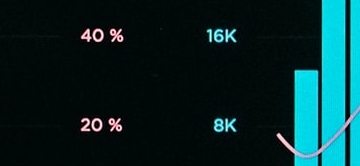The Covid-19 epidemic calls into question the very principles of globalization, says TSE researcher Marie-Françoise Calmette. Our health security is just one of the vital areas undermined by lack of regulation and global monopolies. How can we fix the spectacular market failures produced by our global and interdependent economic systems?
On March 16, President Macron declared: “The day after, when we win, it will not be a return to the day before.” We need to change our analyses and our extravagant behavior in many areas. Globalization has exploded thanks to falling transport costs. But when transport costs suddenly become infinite, everything stops. This is what happened to us, with the coronavirus epidemic acting as a circuit breaker. We now realize how dependent we all are.
What do we do on the day after? We cannot retreat and close our borders; that would be to return to the Middle Ages. But globalization must be controlled. It is possible to solve most shortages by reducing demand, as much of our non-essential consumption can be reduced or even eliminated without profoundly damaging our quality of life. Individuals should consider which of these goods they can do without.
Globalized health
However, this is not the case in other sectors, especially health security: the shortage of medicines is a real potential threat to public health. Underlined by the present crisis, this threat has been hanging over us for some time. For example, we learned a few months ago that the US company Medtronic had decided to stop manufacturing implantable insulin pumps, which are vital for some Type 1 diabetics, in the second half of 2020. This didn't move the masses, apart from the patients concerned, of course, and their doctors (just 397 people are equipped with this pump in the world). However, the recent shortage of the old Levothyroxine formula, which is only produced by the Merck laboratory, has had a worldwide impact. Reports of shortages and supply tensions for drugs of major therapeutic interest have increased from 600 in 2018 to 1,200 in 2019. We learn with amazement that 80% of the active pharmaceutical ingredients used in Europe are manufactured in Asia, mainly in China and India; and that 60% of paracetamol and 90% of penicillin worldwide are produced in China.
Changing patterns
This is not just the work of globalization; above all, it is the result of market failures. Ricardo and other international trade theorists claimed that everyone was a winner in international trade. They were not (quite) wrong in a world of pure and perfect competition. But that world has long since passed away, if it ever existed at all. We live in a world of increasing returns that lead to the formation of global monopolies or even oligopolies that have nothing to do with Covid-19. This has only exacerbated the consequences of market failures that are not compatible with food-safety requirements.
This pandemic must lead us to change our models. We need regulation in certain essential sectors, generally those where the price elasticity of goods is zero, in order to establish self-sufficiency. This must be done at European level, and not only because of the increasing returns. We have the example of the Common Agricultural Policy (CAP), created in 1962, which was later so much criticized, but which made the European Union self-sufficient. A first step has now been taken as the European Commission announced the creation of a strategic reserve of medical equipment and launched a Europe-wide call for masks, respirators and screening tests “to reduce costs and avoid competition between states”. The aim is to stockpile the reserve, with an initial budget of €50 million, then to “distribute it among the 27 countries according to needs”. It is to be hoped that this healthy solidarity does not gradually wither away in the days to come.
TSE Mag #20: Spring 2020




